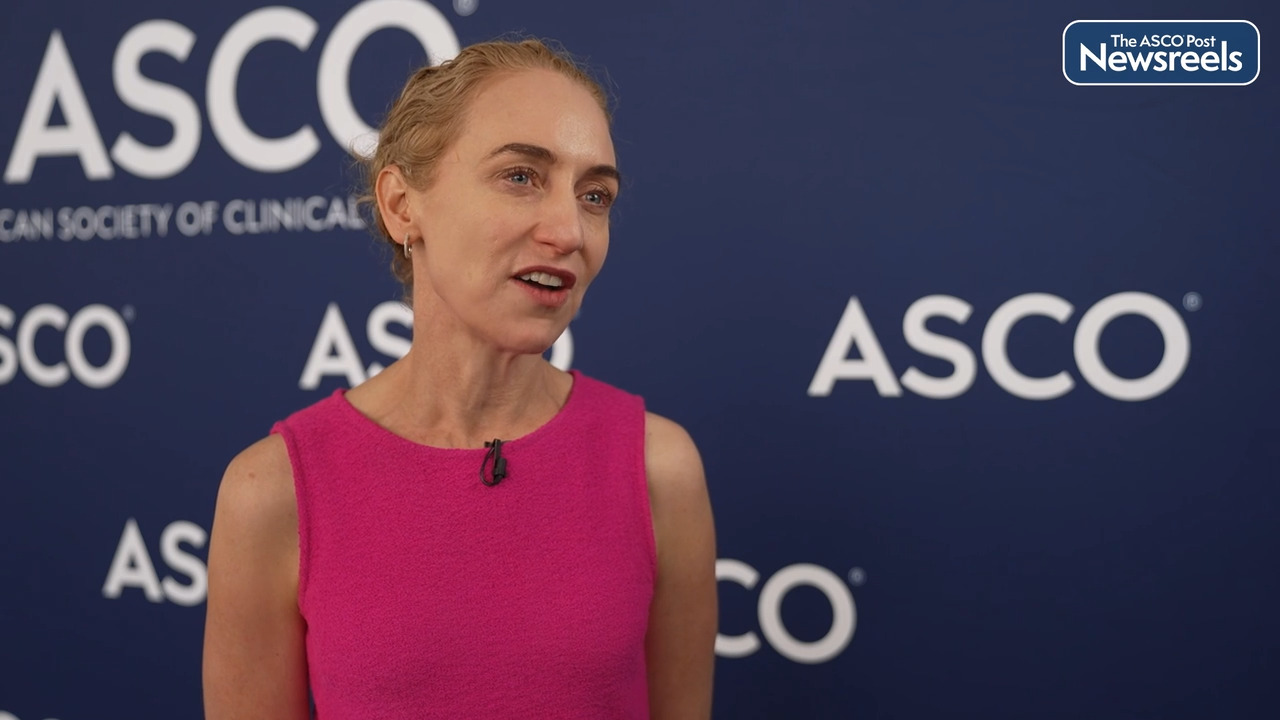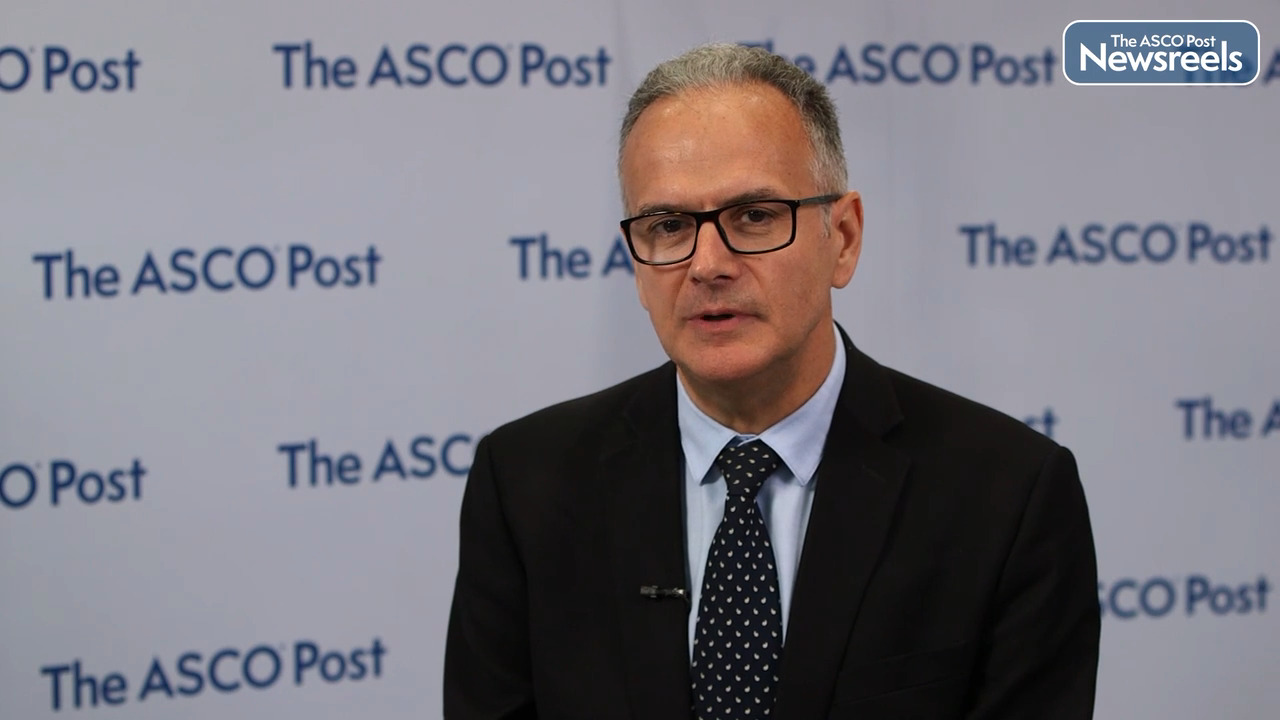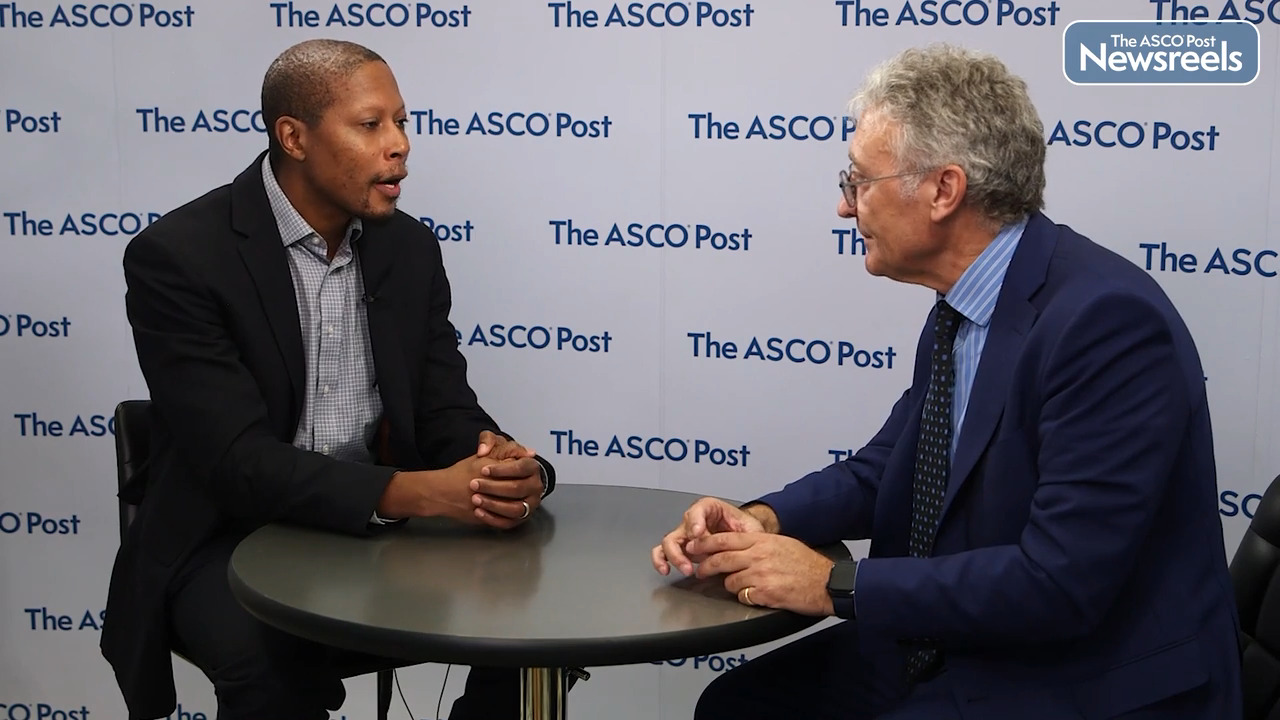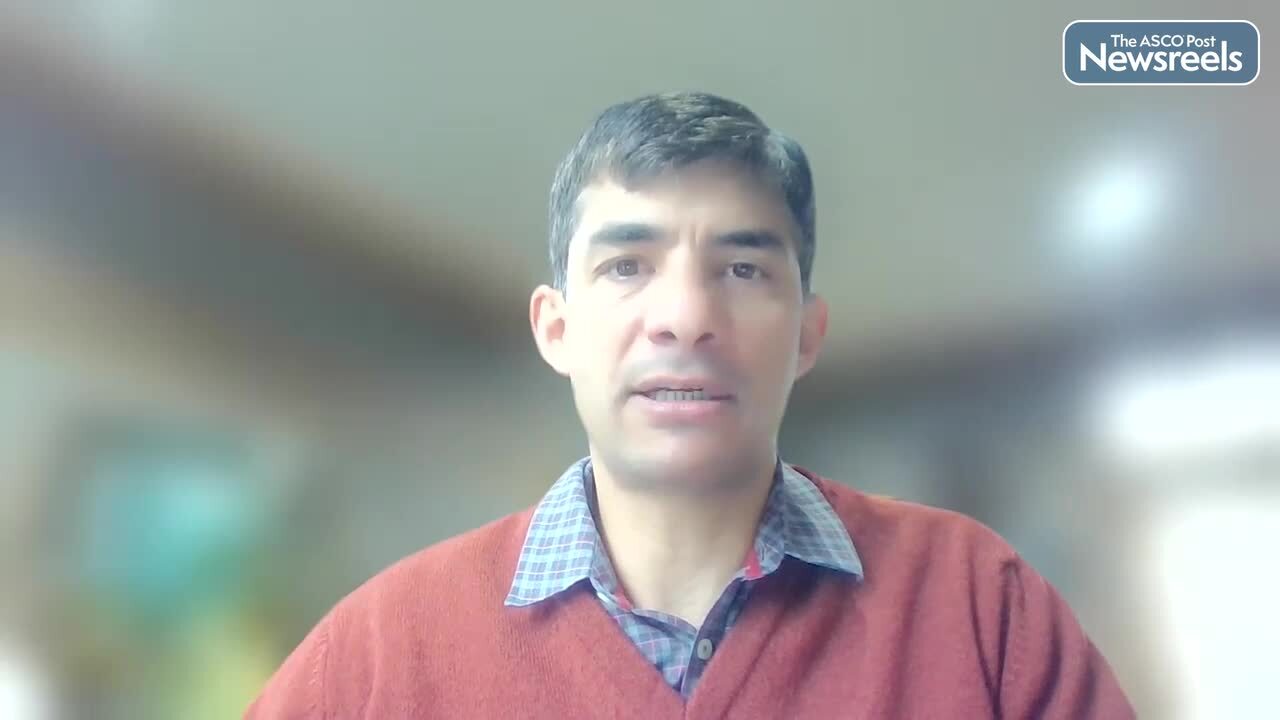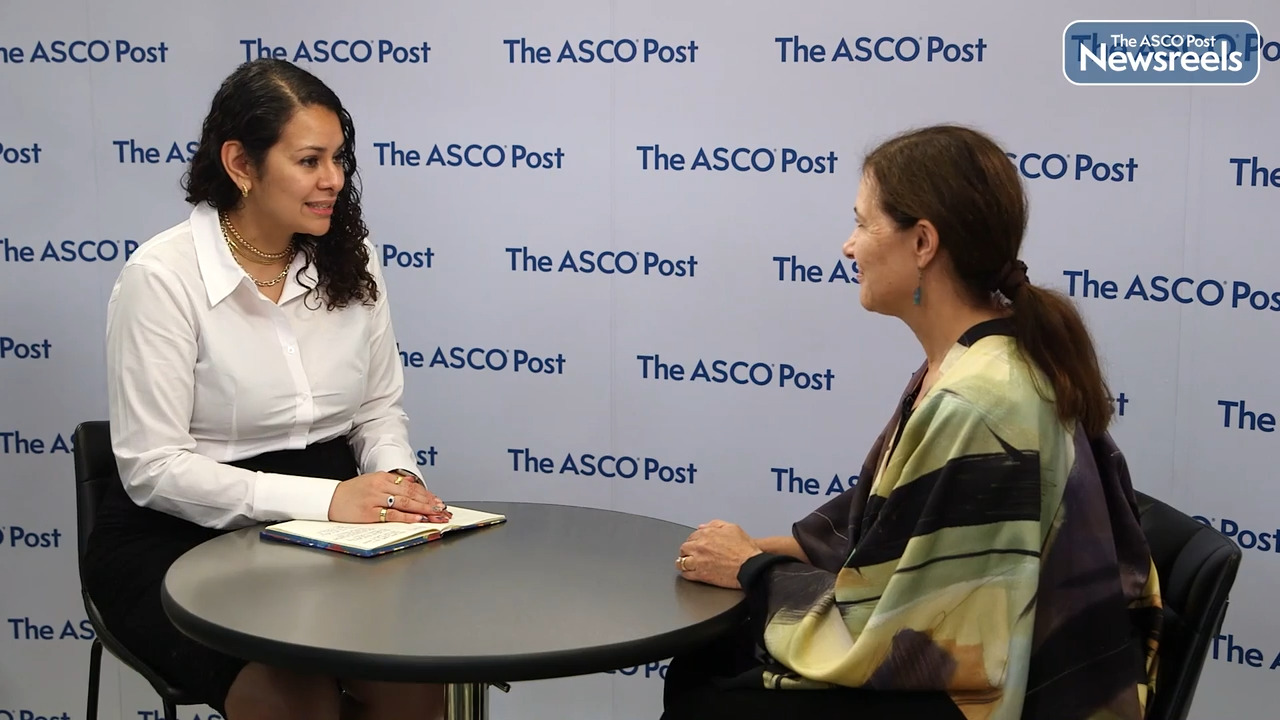Jennifer L. Crombie, MD, on DLBCL: Real-World Outcomes With Novel Therapies in Relapsed or Refractory Disease
2023 ASCO Annual Meeting
Jennifer L. Crombie, MD, of Dana-Farber Cancer Institute, discusses the historically poor outcomes for patients with relapsed or refractory diffuse large B-cell lymphoma (DLBCL). Her study examined real-world data on the use of novel therapies in this population and found that outcomes with second- and third-line regimens of polatuzumab vedotin-piiq plus bendamustine and rituximab and tafasitamab plus lenalidomide remain suboptimal, with worse outcomes particularly after chimeric antigen receptor T-cell therapy (Abstract 7552).
Transcript
Disclaimer: This video transcript has not been proofread or edited and may contain errors.
Jennifer L. Crombie, MD:
We know that the treatment landscape of diffuse large B-cell lymphoma or DLBCL has significantly evolved over the past few years since the availability of multiple new therapeutic options that are now FDA approved for this disease. The outcomes of patients in the real world setting utilizing these novel agents, however, remains less clearly described. In our study, we utilize the CODA Electronic Health records database, which consists of patient demographic and clinical information from both academic and community practice sites across the United States.
We identified over 5,700 patients with a diagnosis of DLBCL in the database. And further within this cohort, we identified 175 patients with relapsed refractory disease, who had been treated with a novel therapy. Novel therapies consisted of chimeric antigen receptor T-cell therapy, or CAR-T therapy, Tafasitamab plus Lenalidomide, Polatuzumab plus Bendamustine and Rituximab, and along Cetuximab, there were no patients in the database treated with Selinexor.
Patients were also required to have at least one post index response assessment or date of death recorded following their treatment with the novel therapy. Patients were further classified as having received two or more versus three or more lines of therapy. We next examined outcomes within each treatment group. We found that outcomes were best among the patients treated with CAR T-cell therapy with overall response rates of approximately 75% and a median overall survival of 27 in 18 months, in patients who had received two or greater versus three or later lines of therapy.
Outcomes were poorer among patients who had received other novel therapies. Those patients treated with Polatuzumab based regimens had an overall response of approximately 60% and a median overall survival of 7.5 months. And patients treated with Tafasitamab based regimens had response rates ranging from 35 to 40% depending on the line of therapy and a median overall survival of approximately six months.
Patients treated with novel therapies after CAR T-cell had a particularly poor outcomes with overall survivals of less than three months. While it's encouraging that novel therapies are now available for patients with relapse or refractory DLBCL, our data highlight the persistent poor outcomes that are seen in the relapsed refractory setting, particularly after CAR-T relapse and the urgent need for ongoing treatment options in this space. Thankfully, other drugs including CD20, CD3 bispecific antibodies, as well as other novel therapies and combinations are being studied in ongoing clinical trials.
Related Videos
The ASCO Post Staff
Georgina V. Long, MD, PhD, of Melanoma Institute Australia and The University of Sydney, discusses new data showing that patients with resected stage IIB/C melanoma who were treated with adjuvant nivolumab had prolonged recurrence-free survival compared with placebo across all biomarker subgroups. The baseline biomarkers most predictive of prolonged recurrence-free survival with nivolumab were high interferon gamma score, high tumor mutational burden, CD8 T-cell infiltration, and low C-reactive protein (Abstract 9504).
The ASCO Post Staff
Alberto Bossi, MD, of Institut Gustave Roussy, discusses phase III findings showing that combining prostate radiotherapy with systemic treatment did not improve overall survival in men with de novo metastatic castration-sensitive prostate cancer and low metastatic burden. However, best outcomes (radiographic progression–free-survival and overall survival) were observed in men receiving the standard of care plus abiraterone acetate plus prednisone with radiotherapy (Abstract LBA5000).
The ASCO Post Staff
Tycel J. Phillips, MD, of City of Hope National Medical Center, and Emanuele Zucca, MD, of the Oncology Institute of Southern Switzerland and the International Extranodal Lymphoma Study Group, discuss findings from the largest prospective study of patients with primary mediastinal B-cell lymphoma. The trial data support omitting radiotherapy in patients who achieve complete metabolic response after immunochemotherapy (Abstract LBA7505).
The ASCO Post Staff
Shailender Bhatia, MD, of the University of Washington and Fred Hutchinson Cancer Center, discusses phase I/II results on the efficacy of nivolumab with or without ipilimumab in patients with recurrent or metastatic Merkel cell carcinoma. The study found that, for this rare and aggressive skin cancer, nivolumab showed clinical activity in advanced disease. However, these results from CheckMate 358 do not suggest an additional benefit with ipilimumab added to nivolumab (Abstract 9506).
The ASCO Post Staff
Narjust Florez, MD, of Dana-Farber Cancer Institute, and Heather A. Wakelee, MD, of Stanford University, Stanford Cancer Institute, discuss new data supporting neoadjuvant pembrolizumab plus chemotherapy followed by surgery and adjuvant pembrolizumab as a promising new treatment option for patients with resectable stage II, IIIA, or IIIB (N2) non–small cell lung cancer (NSCLC) (Abstract LBA100).
